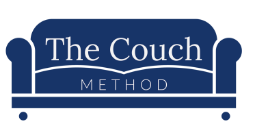A Beginner’s Guide to Mental Health Services
“What is the difference between going to therapy and going to counseling? And why are there so many different types of therapists to choose from? It’s so confusing!” These are common thoughts for people new to the mental health world, and that confusion can be a big barrier to finding the type of mental health service you’re looking for. When I first decided to become a counselor, I had a similar experience. After a few cursory google searches, I was quickly overwhelmed by the many terms that seemed interchangeable to me. Was I going to do therapy or counseling? Did I want to be a psychologist or a clinical mental health counselor? For those of you who don’t have the benefit of a therapist friend or family member to help you decipher this psychological code, here’s a beginner’s guide to understanding the mental health profession.
Therapy vs. Counseling: Which is which?
In practice, “therapy” and “counseling” are often used interchangeably. One common way of distinguishing between the two is to associate therapy or psychotherapy with long-term work that gets at the roots of an issue while counseling is associated with short-term work aimed at alleviating a specific symptom. Like most definitions, though, there are cases that don’t fit neatly within those lines: counseling could be long-term and get at root causes while therapy could be short-term and alleviate specific symptoms. But that leaves us back where we started, feeling more confused than ever. That’s why I think a more helpful way of distinguishing between counseling and therapy has to do with understanding their historical context and philosophical approach.
Like any profession, the mental health field developed organically. Like a tree, different branches developed at different times and for different purposes. The field of psychology developed first (think 1890s) and was popularized by people like Freud. This branch of the mental health field grew out of the medical model which diagnoses a problem and then prescribes a treatment to fix the problem. Historically, this led to a stronger power differential between therapist and patient. Today, the field of psychology has echoes of this model but has become much more holistic and attentive to that power differential. You can see that echo reflected in the language used. You may hear a psychologist say “patient” whereas a counselor might say “client”. Counseling, on the other hand, developed a little later (think early 1900s). In response to the medical model, counselors began looking at mental health from a strengths-based perspective. Rather than seeing the person as the problem and treating them much like a doctor would treat an illness, the counseling profession views the client as a collaborator in setting goals. It focuses on the strengths and assets of an individual and harnesses them to help a client achieve their goal.
You might be thinking, “Isn’t this just semantics? It sounds like psychologists and counselors do basically the same thing.” In one sense, yes, you would be right. Psychologists and counselors doing a mental health session would be doing a lot of the same things. But, language matters. And knowing what type of mindset or training is behind that language can help you find a good therapeutic match for your needs.
Types of Mental Health Professionals
Now that you’ve got a better understanding of the difference between therapy and counseling, it’s time to demystify the most common types of therapists. The titles they hold have a lot to do with the type of degree they received and their area of specialty.
Clinical Mental Health Counselors: These are going to be your generalists in mental health issues. They can see individuals, couples, families, and groups for a range of mental health issues including depression, anxiety, OCD, trauma, and grief. CMHCs work in a variety of settings from private practice to hospitals to community mental health agencies. They have completed a master’s level degree and are required to take multiple exams to be licensed by the state.
Psychologists: These are going to be mental health professionals who have more advanced degrees that qualify them to perform psychological testing in addition to therapy. Often psychologists will specialize in either therapy, testing, or research, but they receive training in all three areas. Psychologists can have either a PsyD or a PhD. The PsyD training tends to focus more on clinical work whereas PhD training tends to focus more on research.
Psychiatrists/Psychiatric Nurse Practitioners: These are the only mental health professionals who can prescribe medication. These are medical doctors who get specialized training psychotropic medication. Psychiatrists are trained to do therapy as well, but since very few mental health professionals can prescribe, psychiatrists often focus on prescribing and managing medications.
Marriage and Family Therapists: Like CMHCs, MFTs focus on therapy/counseling. The big difference is that their training and caseload is specialized toward couples and families as opposed to individuals. MFTs still see individuals, but often they see more couples and families than a CMHC. Their level of training, licensing requirements, and work settings are similar to those of a CMHC.
Clinical Social Workers: These professionals are also trained to do therapy/counseling, but their training emphasizes the role of the family system and social systems in understanding and treating an individual’s struggles. Because of this emphasis, social workers are equipped to provide a host of case-work-related services in addition to therapy. They have completed a master’s level degree and their licensing requirements and work settings are similar to that of CMHCs and MFTs.
Licensing: What are all those letters after my therapist’s name?
If you’ve been searching for a therapist, chances are you’ve seen a collection of letters after each person’s name. Some say LPC. Others say LCMFT. What do all those letters mean, and are they really that important? Each type of mental health professional that we discussed in the previous section, in addition to completing their degree, is also required to be licensed by the state to be able to provide mental health services. Each of those groups of letters signify the type of license they’ve been issued. There are different requirements for each license depending on the level of training and the services provided, but in essence, each license means the state has approved that professional to be practicing as a mental health provider. See the chart below for more detail on the types of licenses.
| Title of Professional | Services Provided | Level of Training | License (IL) |
| Clinical Mental Health Counselor (CMHC) | therapy/counseling | M.A. | Licensed Professional Counselor
Licensed Clinical Professional Counselor |
| Psychologist | Therapy/counseling, psychological testing, research | PsyD or PhD | Licensed Psychologist |
| Psychiatrist | Therapy, prescribing medications, medication management | MD | Licensed Physician |
| Marriage and Family Therapist | Therapy/counseling specializing in couples and families | MA | Licensed Marriage and Family Therapist
|
| Clinical Social Worker | Case work, therapy/counseling | MSW | Licensed Social Worker
Licensed Clinical Social Worker |
If you’ve stuck with me this far, my hope is that you have a clearer understanding of a very confusing topic. Put that knowledge to good use and look for a provider that addresses your specific needs. Or if you’re already in therapy, ask your therapist what their take on therapy is. Do they use the medical model or a counseling model? Whatever your situation, I am confident that having more information means you’ll be able to navigate the mental health system better. A more informed you means a more empowered you!

